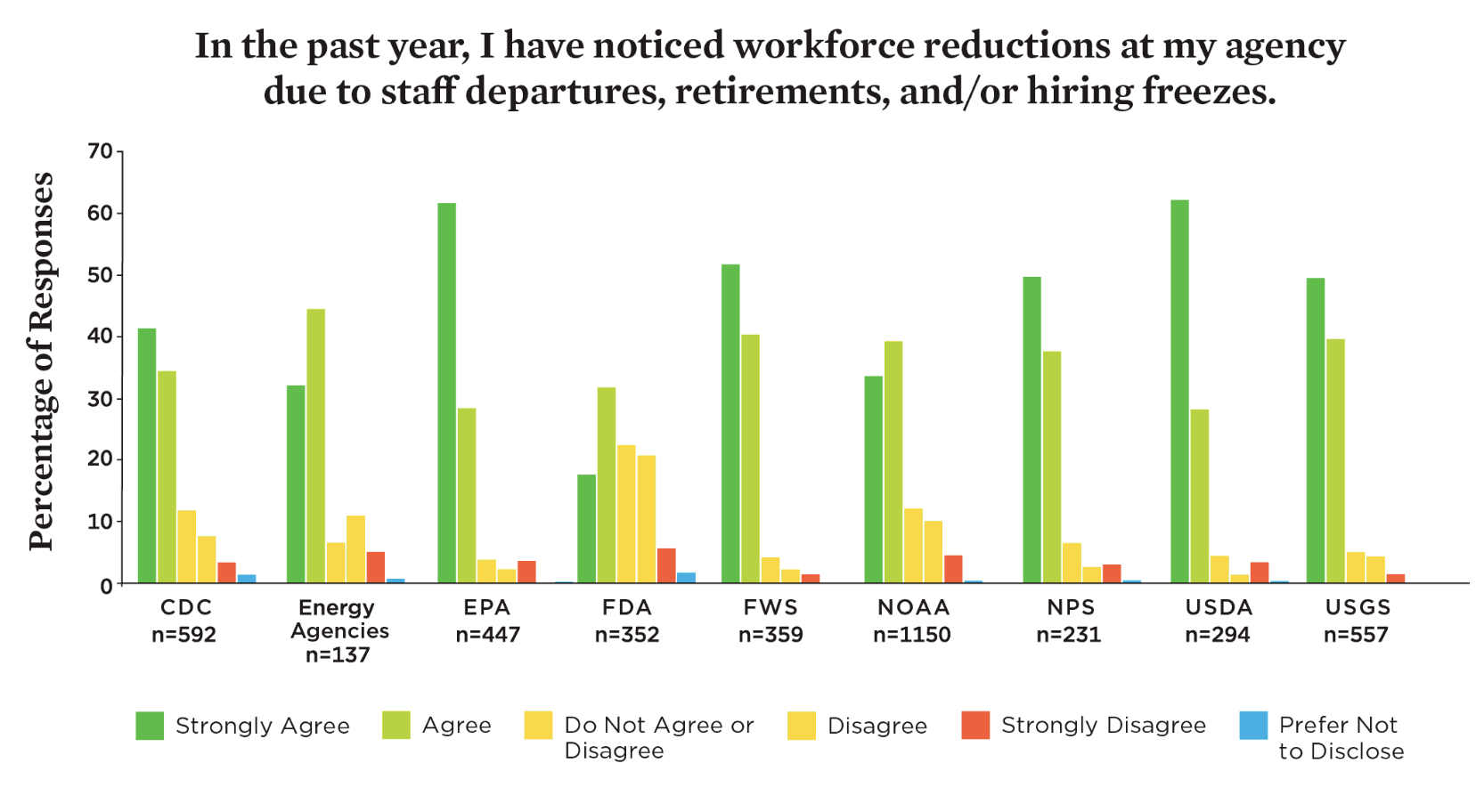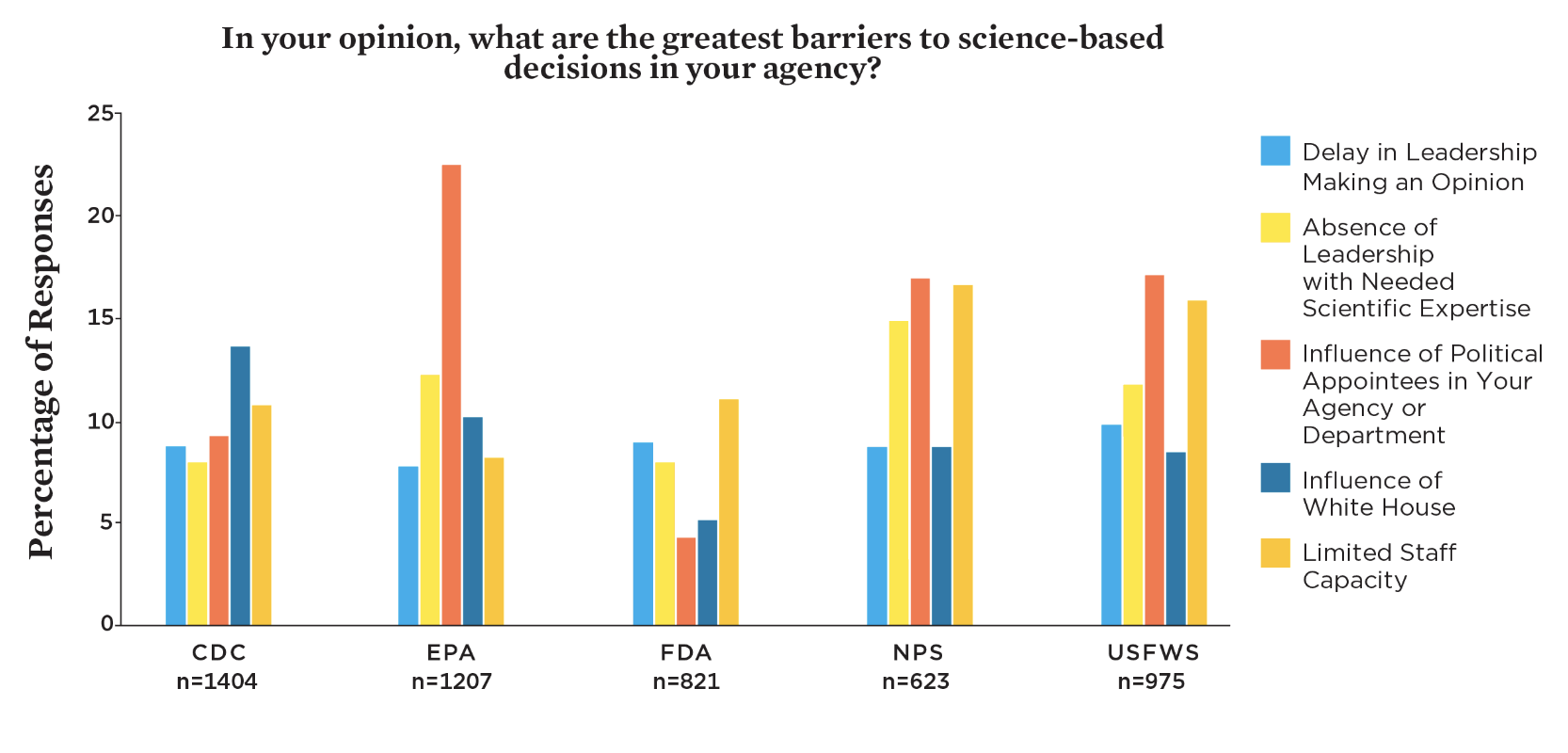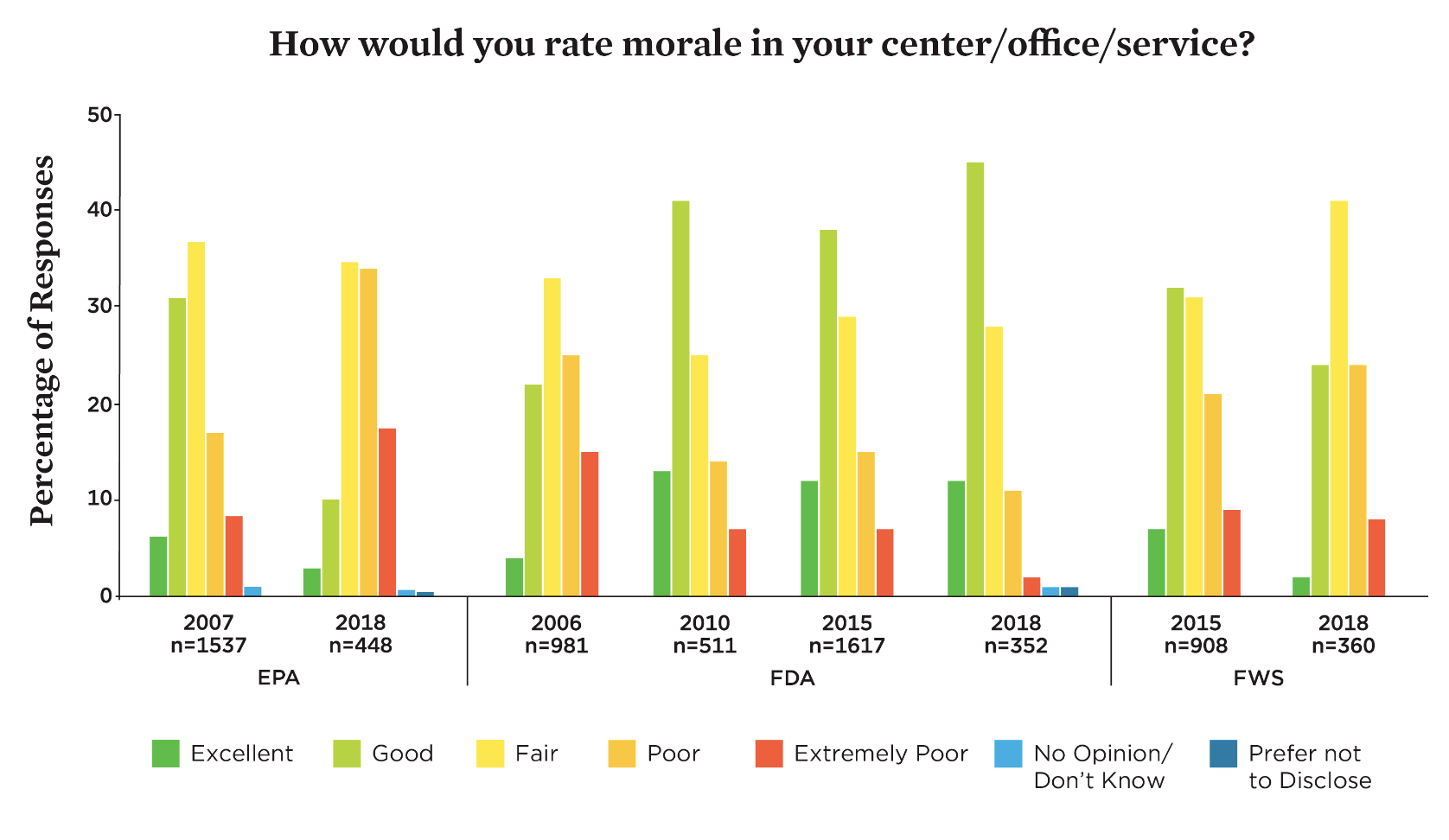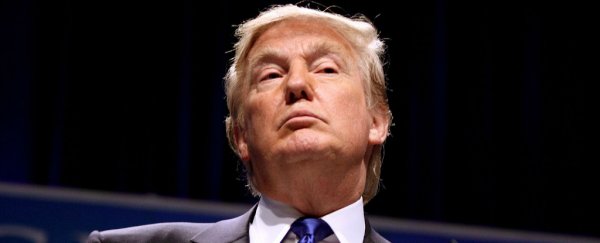Federally employed scientists are raising concerns about the way that the Trump administration has been silencing, repressing and sidelining science and its messengers.
From the outside looking in, it seems pretty obvious that the Trump administration has very little time for the government's science agencies or their scientists.
In fact, the Trump administration's disregard for science has been so overwhelming that Columbia Law School started tracking every single way the government has silenced science in the past year and a half. The running list already has over 150 examples listed.
But with only a few whistleblowers willing to risk their necks to report violations of scientific integrity, there hasn't been much information on what this suppression looks like from the inside.
Now, an anonymous survey has finally let federal scientists speak their minds. The responses show that even within the government, employees are echoing the many concerns raised by the media on the Trump administration's treatment of science.
The study, which surveyed more than 4,211 federal scientists from 16 different agencies with shady records of scientific integrity, suggests there is indeed political interference in the science policy process.
"We all just want to do our jobs to the best of our abilities, using the best evidence-based methods," said one respondent.
"But even those who have spent 30+ years at [Centers for Disease Control (CDC)] are concerned that, for the first time, politics are being put above science."
Numerous federal scientists agreed, saying that they feel like they are working in an environment that is not conducive to fulfilling their science-based mission.
Many described instances of their work being censored, and this was especially true for those scientists working on the Trump administration's least favorite subject: climate science.
"The results should be disturbing to anyone who believes that government science has a crucial role to play in making the United States a safer, healthier nation," says a press release from the UCS.
"Federal scientists describe a broad range of problems, including workforce cuts, censorship and self-censorship, political interference, and undue industry influence. Unsurprisingly, these problems have taken a toll on morale, making it hard for scientists to do their jobs effectively."
While the survey was sent to tens of thousands of federal scientists, a very small number responded and these people were not randomly selected, which means they probably had to get some stuff off their chests.
Even still, the survey is a worrying indication for how scientists in these federal agencies feel about the current direction under the Trump administration, especially when many do not feel comfortable speaking their minds in public or to the media.
The new survey offers a disturbing glimpse behind-the-scenes at science agencies under the Trump administration.
Where have all the federal scientists gone?
Governments employ scientists because they provide essential expertise in the making of evidence-based policy. But when an administration is not interested in the best available science, those experts are no longer useful.
That is exactly what we are seeing right now with the current administration. As of June 2018, President Trump had failed to appoint 58 of the 83 government posts that the National Academy of Sciences designates as "scientist appointees."
It's not uncommon for these positions to take a while to fill, but compared to previous administrations, Trump's numbers are unprecedented. After a year in office, Obama had only 20 positions left to fill. Even Bush, who had his own science censorship issues, had only 32 left to fill.
You can bet that federal scientists are noticing the changes. Across all agencies, 79 percent of respondents reported workforce reductions during the last year due to staff departures, retirements, or hiring freezes.
Of that number, 87 percent reported that these reductions made it more difficult for their agences to fulfil their missions.
A respondent from the US Fish and Wildlife Survey (USFWS) explained the problem in one simple but terrifying statement: "Many key positions remain unfulfilled, divisions are understaffed, and process has slowed to a crawl."
 (UCS)
(UCS)
Censorship and Interference
The Trump administration isn't just ignoring science, they are also trying to influence it, the report reveals.
Across all agencies, 50 percent of respondents felt that "the level of consideration of political interests hindered the ability of their agencies to make science-based decisions."
At certain agencies, these numbers skyrocketed. At the US Fish and Wildlife Service, 69 percent of respondents felt the same. At the National Park Service (NPS), 76 percent. At the Environmental Protection Agency (EPA), a whopping 81 percent.
 (UCS)
(UCS)
When it comes to discussing climate science, things get even stickier. Across the board, survey results show that 18 percent of respondents had been asked in the past year and a half to omit the phrase " climate change" from their work.
At certain agencies, where climate science plays a key role, the percentage was even higher. For instance, at the NPS, it was 47 percent and at the EPA it was 35 percent.
"We are no longer authorized to share scientific findings with the public if they center on climate change," a respondent explained.
"Materials are marked as only for internal use."
To avoid repercussions at work, 20 percent of respondents are preempting the inevitable fight and self-censoring themselves with regards to climate change.
Morale at these agencies is understandably low, making it harder for federal scientists to do their jobs.
"The general attitude and morale are negative," said a respondent from the Department of Energy (DOE).
"This is a leadership problem and it comes from the very top. The attitude is derisive and dismissive. This can make it tough to go to work every day. Government employees are just people."
This isn't the only complaint about poor leadership in the survey. Nearly 40 percent of scientists at the CDC, the EPA, the NPS, and the USFWS agreed that lacklustre leadership - including officials lacking scientific expertise, wasting taxpayer dollars through counterproductive reorganizations and clampdowns on scientists' ability to share their knowledge with the public - was a major barrier to fulfilling their agency's work.
 (UCS)
(UCS)
"The constant attacks on science and facts by the current administration has negatively impacted scientists in the agency," a respondent explained.
"Effects range from anger and frustration to depression and even opting to retire early. Twenty-five years of experience with 3 federal agencies and I've never seen anything like this—it is appalling."
Even though the results are from a small subsection of employees, even one instance of scientific censorship is not acceptable. Science concerns all of us, and this report should too.
The survey has been published by the Union of Concerned Scientists.
Science AF is ScienceAlert's new editorial section where we explore society's most complex problems using science, sanity and humor.
